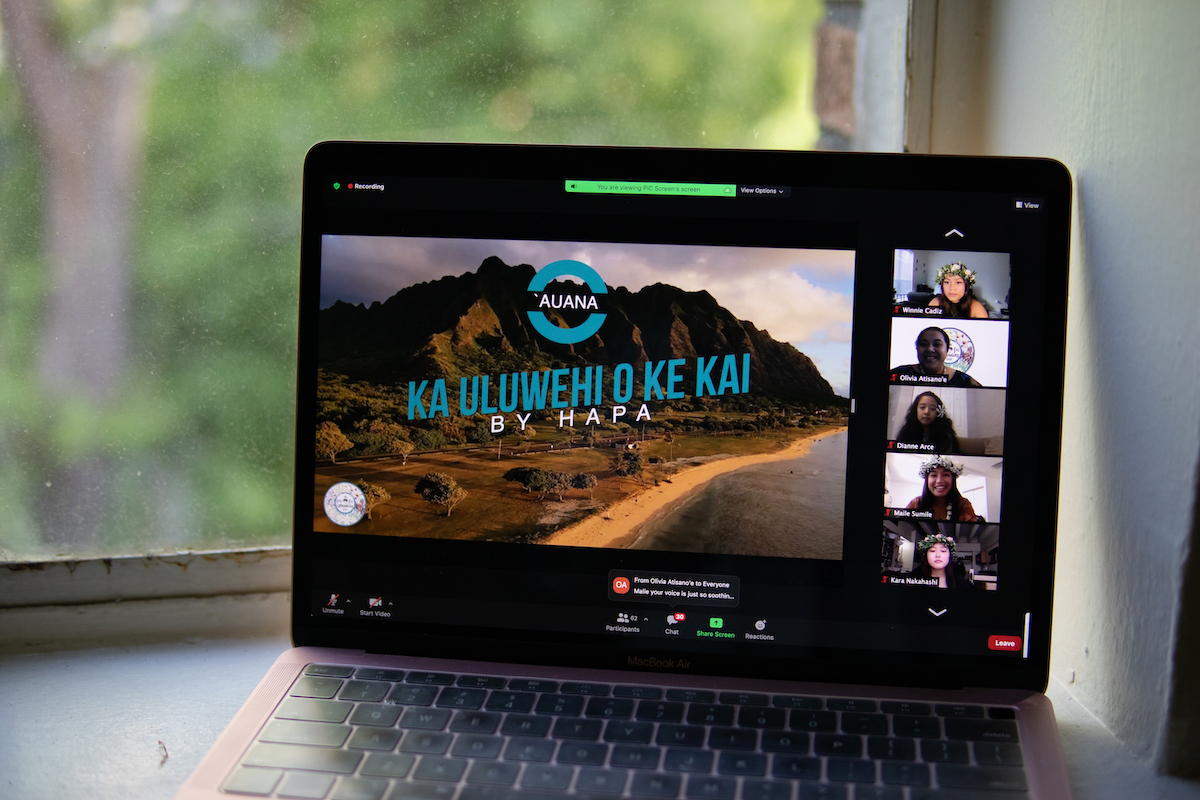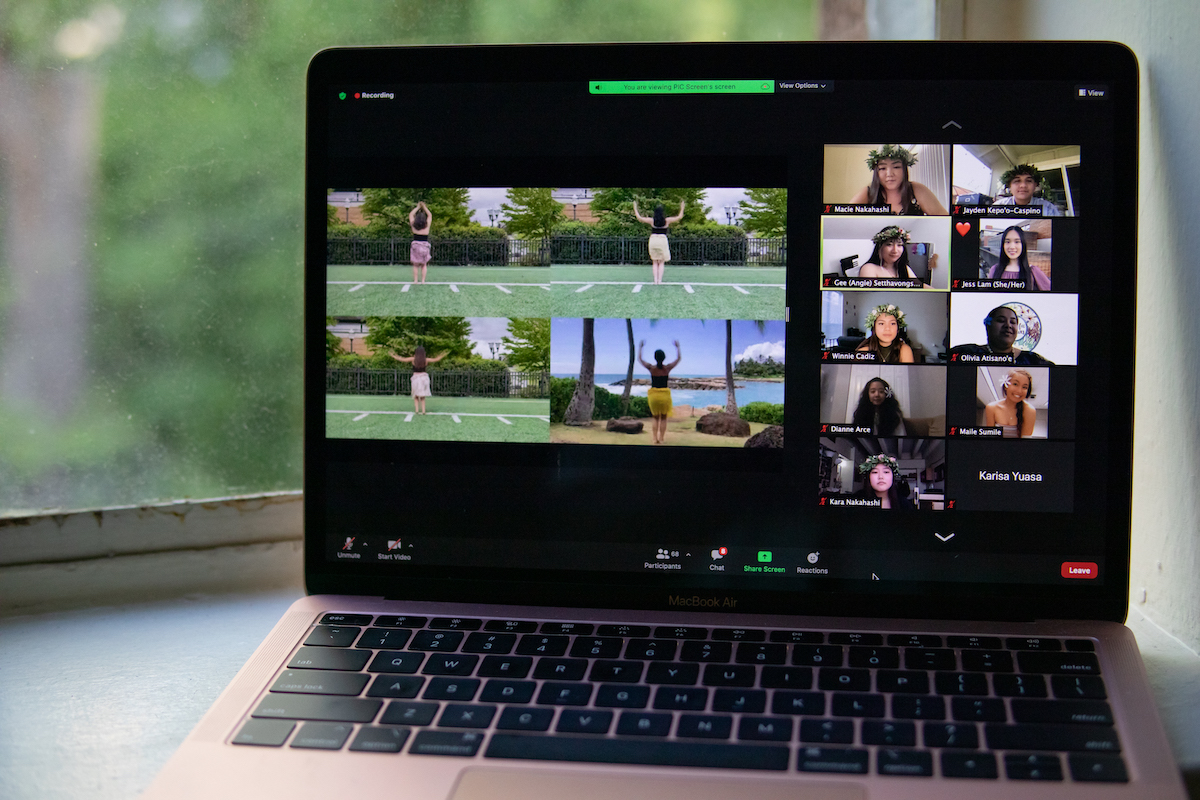Over a year into the COVID-19 pandemic, people are continuing to adapt and figure out how to pull off large scale events in the virtual world. The Pacific Islander’s club (PIC) took its annual Lūʻau from the floor of Viking Pavilion to Zoom on May 15.
“It was definitely a challenge due to everything being remote,” said Maile Sumile, the PIC treasurer and one of the choreographers and dancers at the Lūʻau. “In my opinion, the vibes are completely different when you go to a Lūʻau in person versus watching it through a screen.”
The 18th annual Lūʻau, themed “Journey Through the Pacific,” included dances choreographed and danced by Portland State students representing different Pacific Islander cultures.
“Putting on a Lūʻau every year is very important to me because I would like to spread the PI culture here at PSU since PSU is not as diverse as it seems,” said PIC President Macie Nakahashi, who also choreographed and danced during the event. “The PI and Native Hawaiian percentage here at PSU is 1% according to their facts and numbers, which is really low. Lūʻau is the best way for others to learn about the PI culture because it is through a fun and interactive show.”
The dances featured styles representing the islands of Hawaiʻi, Tahiti, Samoa and Aotearoa or New Zealand. In addition to student performances, the Lūʻau included special guest performances from fire knife dancer Tolo Tuitele, Polynesian dance troupe Teva Oriata and Grammy Award-winning singer-songwriter Kalani Peʻa.
“Putting on a Lūʻau every year allows us to share our cultures and traditions of the Pacific Islands with the community and by doing this, we are ultimately keeping those traditions alive,” Sumile said.
“With the Pacific Islanders Club, we build an ʻohana, a family. So, putting on a lūʻau every year not only welcomes everyone around, but it brings our family closer together with the different generations—whether they may be a current PSU student, a PSU alumni, or members of the Portland community.”
The pandemic impacted almost every aspect of the planning process of Lūʻau—an event that typically brings in hundreds of people to watch live performances and try local food.
“This year was definitely different from the past years because we were used to a way of things going and we had a system down,” Nakahashi said.
“We had a checklist that we could reuse each year to make sure things were completed. For this year, we had to rethink our system on how to present dances, how to get vendors, and have run-throughs. This year, it took a lot of critical thinking because we wanted Lūʻau to go as smoothly as possible.”
The pandemic affected how they went about their raffle prizes. The raffles consisted of drawings from all attendees and specific drawings for students and people residing in Oregon and Hawaiʻi. The prizes included donations of fruit butters, stickers, jewelry and photography sessions from local businesses.
“For vendors, it was a challenge because we have always reached out to local businesses in Hawaiʻi, PI and Oregon,” Nakahashi said. “When asking them to be a vendor, I felt bad because I knew that [COVID-19] did hurt a lot of businesses and did cause some to close. I wanted to support smaller businesses and although it was hard, I am thankful for the vendors that did agree to be part of our event and to even donate a door prize.”
Despite the challenges and setbacks, PIC made the most out of the situation to put on their first virtual Lūʻau in it’s 18-year run.
“This year, we took the fact of everything being online as an opportunity to grow our ʻohana by reaching out to those out-of-state and back home in the Pacific Islands and around the world,” Sumile said.
“Last year we weren’t able to [do Lūʻau] and it made me feel empty, like I was missing something,” Nakahashi said. “Even though Lūʻau had to be virtual this year, putting on a show was a must, because I am a senior graduating and PIC has been part of my four years here and I wanted to graduate knowing I had the chance to put on a Lūʻau. It was something new and I am glad we were able to pull through and make it the best that we could.”



